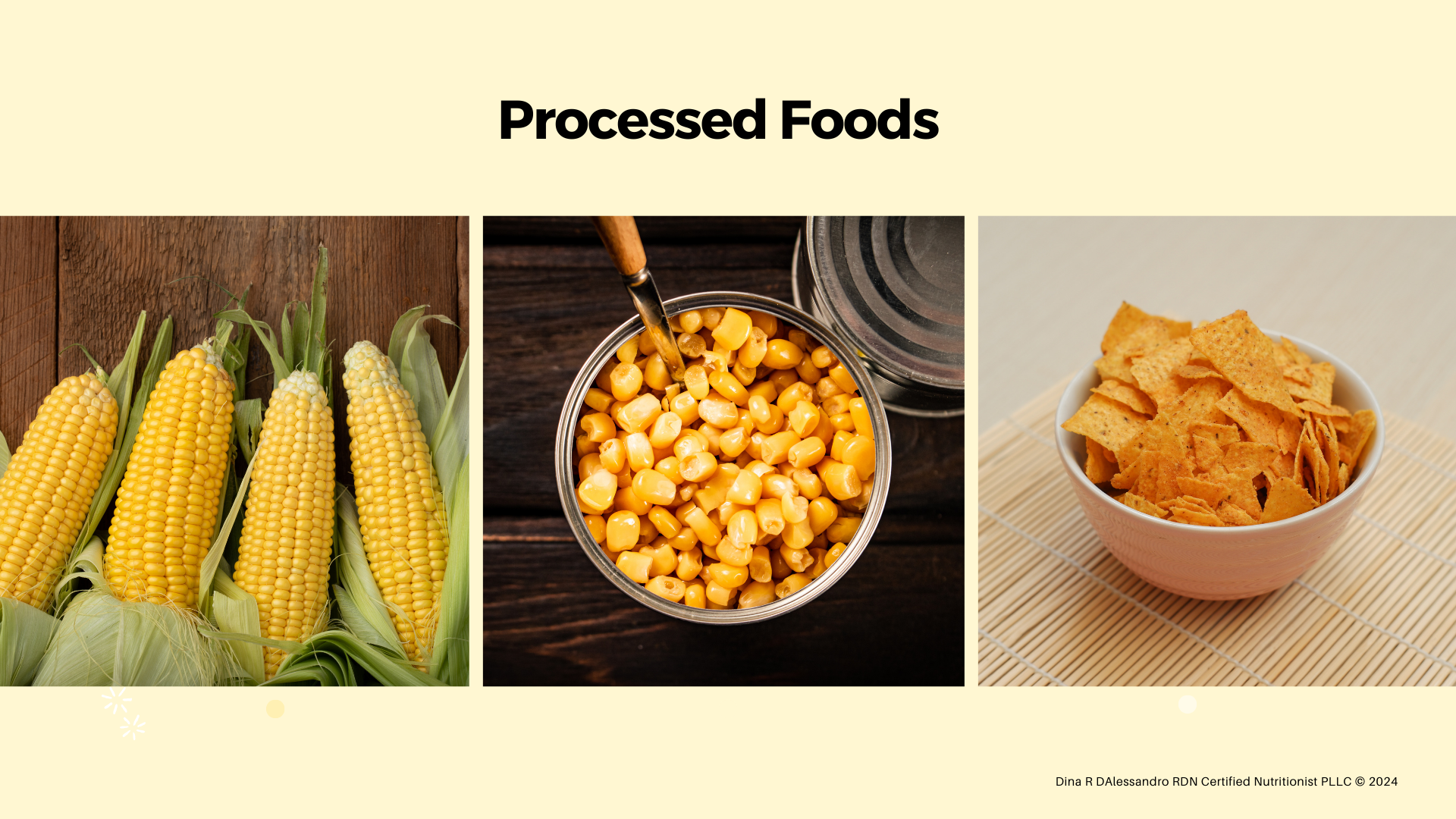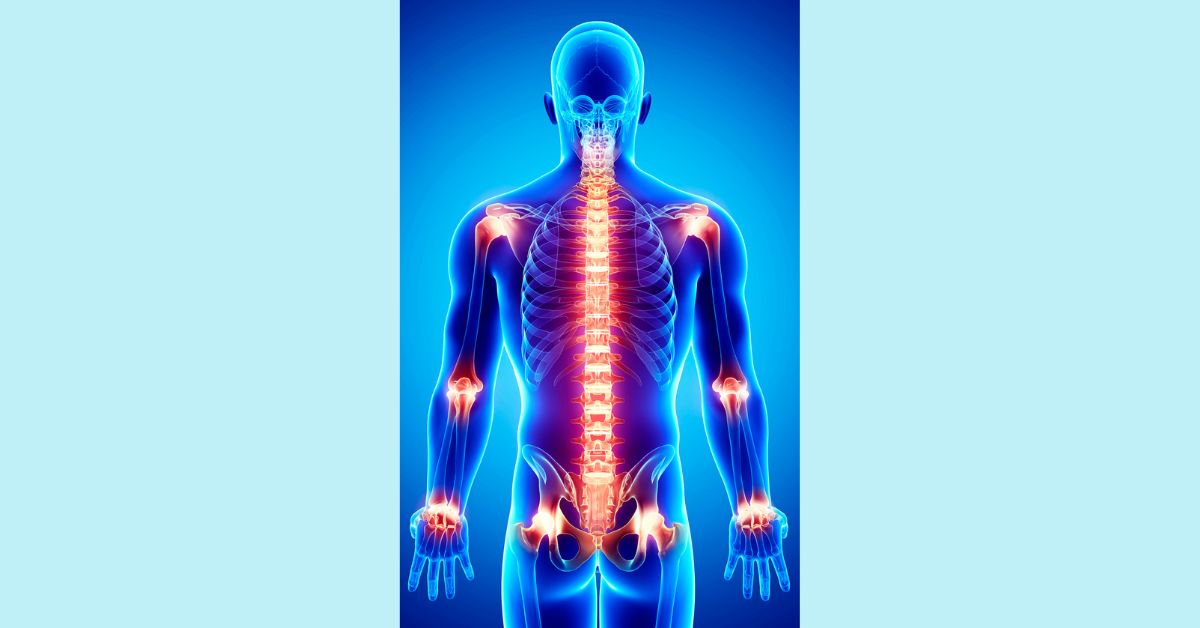Learn practical tips from a registered dietitian on reducing chronic inflammation through nutrition. Understand the connection between food and inflammation to improve your mental and physical health.
Our body naturally wants to protect us and be in a constant state of balance. Inflammation is a crucial part of our immune response, helping to fight off infections and heal injuries. However, when inflammation becomes chronic, it can contribute to various health problems, including heart disease, diabetes, and cancer [1]. Understanding and treating chronic inflammation can be a bit tricky as there are so many factors involved and it’s difficult to pinpoint what exactly can kick off an episode or how/when inflammation can turn into something worse.
Acute vs. Chronic Inflammation
Inflammation is the body’s natural defense mechanism against harmful stimuli, such as pathogens, damaged cells, or irritants. It involves the immune system recognizing and responding to these threats by producing various signaling molecules and white blood cells. You can think of your inflammatory cells like a small army that marches out to clear out debris and assist in tissue repair. Acute inflammation is a short-term response that helps the body heal, whether you have a paper cut or poison ivy.
When inflammation persists, or when something deeper is at hand, it becomes chronic and can damage healthy cells, tissues, and organs. It can also contribute to the aging process and increase a person’s risk of developing neurodegenerative diseases like Alzheimer’s Disease [2]. Managing chronic inflammation is no easy feat because the causes are multifactorial and not always easy to recognize. Diagnosis of inflammation is done by testing C-reactive protein (CRP) levels or erythrocyte sedimentation rate (ESR), so if you’re feeling that something might be “off” or have been living many years with a condition ending in -itis, be sure to reach out to your doctor and ask for a CRP or ESR test as these might not be part of your usual comprehensive metabolic panels (blood tests).
A Balanced and Varied Diet
Certain foods are known to trigger and exacerbate inflammation in the body, leading to chronic health issues. Highly processed foods, such as those high in trans fats, refined sugars, excessive sodium (usually from packaged and takeout foods) and refined carbohydrates, can increase inflammatory markers. Red and processed meats may promote inflammation when consumed in large amounts. Artificial additives and preservatives found in many packaged foods can also provoke an inflammatory response.
Interestingly, diets high in omega-6 fatty acids (not to be confused with omega-3 fatty acids), common in vegetable oils, can contribute to an imbalance, further promoting inflammation [3].
Alcohol and sugary beverages also play a significant role in increasing inflammatory processes, affecting overall health and well-being.

Incorporating anti-inflammatory foods into one’s diet can significantly reduce inflammation and enhance overall health. Certain plant-based foods—like turmeric, pineapples, and green tea—have potent anti-inflammatory properties (known as antioxidants and phytochemicals) that help suppress inflammatory pathways in the body and can help reduce pro-inflammatory molecules and oxidative stress [4].
Including a mix of these foods in our daily meals can lower our risk of chronic inflammatory diseases, improve our immune response, and promote overall well-being. A balanced diet rich in anti-inflammatory foods is crucial for managing inflammation. As nutritional needs change over time, it’s essential to adapt your diet to meet these needs.
Here are some practical tips for incorporating anti-inflammatory foods into your meals:
- Start Your Day with a Healthy Breakfast: Try a smoothie made with spinach, berries, and chia seeds.
- Include a Variety of Vegetables: Add colorful vegetables to your lunch and dinner.
- Choose Whole Grains: Opt for brown rice, quinoa, or whole-wheat pasta instead of refined grains.
Get inspired by these easy recipes below (or check out the long list of anti-inflammatory meals over at Eating Well):
- Berry Smoothie: Blend together 1 cup of mixed berries, 1 cup of spinach, 1 tablespoon of chia seeds, and 1 cup of almond milk.
- Quinoa Salad: Mix cooked quinoa with chopped cucumbers, tomatoes, red onions, and a dressing of olive oil and lemon juice.
- Baked Salmon: Season salmon fillets with lemon, garlic, and herbs, and bake at 375°F for 20 minutes.

Lifestyle Factors and Personalized Nutrition
In addition to diet, other lifestyle factors can influence inflammation. Regular physical activity, adequate sleep, and stress management are crucial for reducing inflammation. Incorporate activities like yoga or meditation into your routine to manage stress. Aim for at least 7-8 hours of sleep per night, and engage in regular exercise, such as walking, swimming, or cycling, if you’re medically cleared to do so.
I always tell my clients that it’s not just one direct cause, but a combination of factors that can affect their health and every person (even those within the same life cycle, from the same culture, or with the same diagnosis) is unique, so it’s important to remember that nutritional needs vary from person to person. Consulting with a healthcare professional can give you that personalized guidance tailored to individual health needs and goals, especially when you are working with or being referred to a specialist like a Registered Dietitian. Understanding the impact of inflammation on health and the role of nutrition in managing it can empower you to make informed dietary choices.
Interested in learning more or working with me (Dina)? Click here to book a virtual consultation.

References
- Inflammation: What Is It, and how can my diet and behavior affect it? – https://nutrition.org/inflammation-what-is-it-and-how-can-my-diet-and-behavior-affect-it/
- Source of Chronic Inflammation in Aging – https://www.ncbi.nlm.nih.gov/pmc/articles/PMC5850851/
- The Importance of Maintaining a Low Omega-6/Omega-3 Ratio for Reducing the Risk of Autoimmune Diseases, Asthma, and Allergies – https://www.ncbi.nlm.nih.gov/pmc/articles/PMC8504498/
- Design of an anti-inflammatory diet (ITIS diet) for patients with rheumatoid arthritis – https://www.ncbi.nlm.nih.gov/pmc/articles/PMC6997513/



0 Comments